Theme: Use Heart to Connect
World Heart Day, an enormously important day dedicated for cardiovascular health, is celebrated every year since 2000 when it was first launched to raise awareness of cardiovascular diseases. This year too, it falls on September 29th aiming to give us an opportunity to reflect on heart health.
Why do we need a separate day for cardiovascular diseases?
World heart day was created by World Heart Federation (WHF) as a global campaign to fight against cardiovascular disease (CVD). Cardiovascular disease, a group of conditions affecting heart and blood vessels, is a leading cause of death globally causing over 18 million deaths every year.
A diverse group of disease conditions are included under the umbrella term CVD. They comprise of diseases affecting heart like heart attacks, technically termed as myocardial infarctions, failure of the heart as a pump called heart failure, heart rhythm abnormalities etc and diseases affecting blood vessels like stroke or brain attack resulting in paralysis or various other neurological symptoms and peripheral vascular diseases where blood supply to limb is affected.
Use Heart to Connect
“Harnessing the power of digital health to improve awareness, prevention and management of CVD globally is the goal for Word Heart Day 2021” (WHF)
World is battling against COVID 19 pandemic. Unfortunately patients with CVD are more vulnerable and have become a high risk group. Heart patients are susceptible to get more severe form of COVID 19 infection and to make matters worse, these patients tend to get more isolated from family and health care facilities due to fear of contracting the virus. Therefore this year’s theme, Use Heart to Connect is about using digital resources and technology to connect every heart everywhere with empathy and compassion. No one should feel alone or left alone in this era of advanced technology and it should be used to defeat isolation and close the gaps in care.
1. Quit smoking
yes to life, say no to tobacco…
Cigarette smokers are 2 to 4 times more prone to get heart disease and strokes than non-smokers.
How does smoking affects heart and blood vessels? Smoking can damage the blood vessels, raise blood pressure and heart rate, reduces amount of oxygen reaching the body tissues and increases risk of the blood clots. All these effects can be deleterious to heart and vessels. Stopping smoking dramatically reduces the risk for heart disease and death
It is easier said than done. Therefore let us focus on few tips for successful smoking cessation.
- Find your reason : Strong motivation helps to stay focused and stop you falling back to smoking.
- Line up support in advance : Medical assistance, support groups are easily accessible to give assistance whenever required
- Lean On Your Loved Ones : Your family and friends are the pillars of strength you can derive unconditional support, so rely on them
- Find new ways to relax/ unwind : Stress can make a person fall back to smoking. Music, meditation, yoga or any other activity will help to alleviate stress.
- Try and Try Again : you may not be successful in your first attempt but time is on your side. You only need to try again and again to achieve your target.
- Avoid alcohol and other triggers : Activities or triggers that make smoking inevitable should be avoided.
- Get physical : Exercise always help to alleviate stress and avoid triggers of smoking.
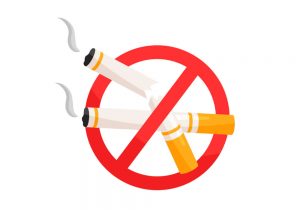
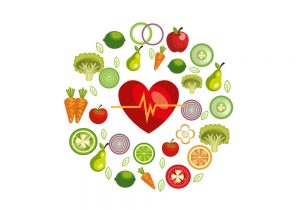
2. Healthy diet
Unhealthy diet is at the root of many health issues specifically obesity, diabetes and CVD. Rapid urbanization, changing lifestyles and easy accessibility of fast foods have made our dietary patterns lot unhealthy.
Here are few health tips on healthy diet that you should keep in my mind.
- Limit saturated and trans fats
- Limit salt
- Limit sugar
- Plenty of fruits and vegetables
Animal products mainly fatty beef, pork, poultry with skin, lard, butter, cheese etc carry lot of saturated fats. Trans fats are contained in baked, processed and fried food items, certain margarines and spreads. In order to cut down saturated and trans fats consume lean meat, poultry without skin, low fat dairy products, fish and nuts. Vegetable oil can be used for cooking but should be in moderation.
At least five portions of fruit and vegetables per day should be a norm of your dietary habits. When using canned or dried vegetables and fruits, choose varieties without added salt and sugars. You should opt for low-fat or reduced-fat versions of milk and dairy products.
3. Regular exercise
Many health benefits can be achieved with regular and adequate exercise.
Exercise….
- Improves your cardiovascular health
- Lowers bad cholesterol
- Lowers blood sugar
- Lowers high blood pressure
- Lowers weight
- Raises good cholesterol and
- Relieve stress and boosts your self-confidence
It is recommended that adults should engage at least 150 minutes of moderate-intensity physical activity, or at least 75 minutes of high-intensity physical activity, every week. Children and adolescents should aim to do at least 60 minutes of moderate- to vigorous-intensity physical activity every day.
Exercise should be a regular part of your life. Due to the pandemic the public exercise facilities are closed most of the time and movement of people is restricted. Therefore the home based exercise should be adopted and make exercise an enjoyable task so exercise becomes a viable and a lasting process rather than a money and time consuming tedious activity.
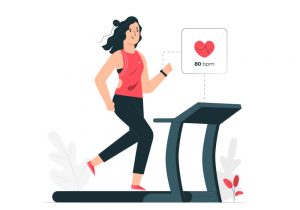

4. Lose weight
World is now facing a blatantly visible epidemic of obesity. It not only adversely affects your cardiovascular health but also can affect your mental well-being. Let us focus on few tips on how to lose weight effectively.
- Do not skip meals – it will make you hungrier and go for more snacking
- Plenty of fruits, vegetables
- Get active – exercise helps to burn off excess calories
- Use a smaller plate – eating less or in smaller portions will definitely help to reduce weight
- Do not ban foods – m banning foods that you like will make you crave them more. You can enjoy an occasional treat as long as you stay within your daily calorie allowance
- Cut down on alcohol – alcohol in the long run can make you gain weight. It is advisable to reduce alcohol intake.
5. Know your numbers
It is important to check your blood pressure, cholesterol and sugar levels on a regular basis.
Know your blood pressure: elevated blood pressure or called hypertension is one of the main risk factors of CVD. It doesn’t cause symptoms in early stages. It needs to be checked regularly and take appropriate steps to control it including reducing salt intake, exercise and medication.
Know your cholesterol: high cholesterol levels is another major risk factor for CVD. It also should be checked regularly and controlled if elevated with dietary measures and medications.
Know your blood sugar: Diabetes, a condition with high blood sugar levels multiplies CVD risk. Diet control and medications are required to control it properly to prevent you getting future cardiovascular events.
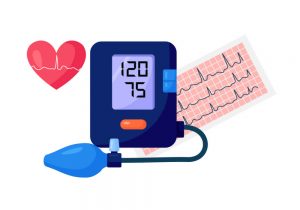
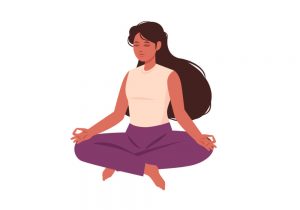
6. Manage stress
Psychological health and wellbeing can affect your cardiovascular health. Regular exercise, practicing relaxation, reserving some time for family and friends, adequate sleep, maintaining positive attitude towards life and engaging in stimulating hobbies will always help.
7. Know the warning signs
Recognising symptoms of CVD can help you survive because earlier the treatment better the chances of survival. Chest pain of tightening or burning in nature with pain radiating down the upper limbs or to the neck or back associated with sweating and nausea is the typical presentation of a heart attack. Sometimes heart burn or burning tummy pain could be due to a heart attack rather than the usual gastritis or indigestion. Sudden weakness of limbs, slurring of speech, mouth deviation or double vision could be due to a stroke. Knowing these symptoms and seeking medical assistance allow you to get treatment early and prevent complications which can be life threatening most of the time.
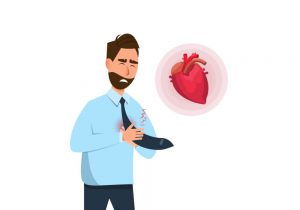
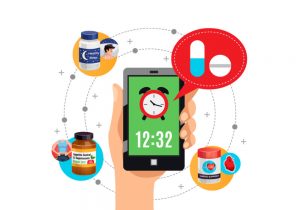
8. Take your medicine regularly and correctly
If you are already diagnosed with a heart disease or stroke, taking your medications unfailingly will reduce your chances of getting another attack of stroke or heart disease. In this pandemic, it can be a gruelling task to obtain your medications due to sudden lock downs or clinics being postponed. Therefore, make sure that you have medication in adequate amount with you always.
9. Measures during pandemic
COVID 19 pandemic has created a havoc globally. People with CVD fall into very high risk category. It is important to
- Continue your medication uninterruptedly
- Follow medical advice
- Continue exercise and balanced diet
- Maintain your social network
- Vaccination – the best vaccine is the first vaccine you can take. Do not hesitate
In a nutshell, quitting smoking, healthy diet, exercise, losing weight and controlling risk factors are the cornerstone of heart healthy living. Taking care of your own heart is of tremendous importance and it has become more challenging than ever due to currently prevailing pandemic situation. Do not be disheartened and you are not alone in this battle. Let us connect and join hands to take care of our hearts before it starts falling apart.
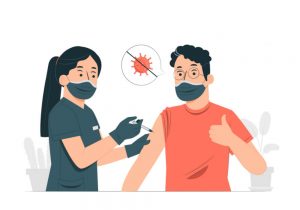
Complied by Dr Sandamali Premaratne – Consultant Cardiologist, District General Hospital Polonnaruwa
Sources : World Heart Federation and American College of Cardiology
